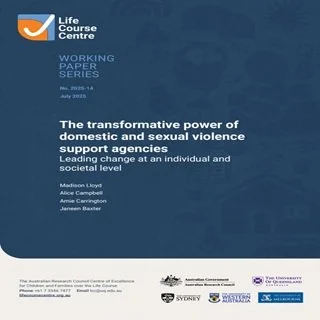By Anne Summers
The data that is published here for the frst time reveals both the shocking extent of domestic violence suffered by women who are now single mothers, and outlines in grim detail the economic, health and other consequences of the choice these women made to leave the violence. The findings are both new and confronting and have major policy ramifications for how we address domestic violence, and to the policy-induced poverty that is its outcome for far too many women and children. Although there is extensive, and growing, awareness about domestic violence in contemporary Australia, the true extent, and the consequences, of this violence remain largely hidden. Perhaps as a result, the conversations about domestic violence are mostly focused on how to deal with its victim-survivors, rather than how to stop the violence from happening. The same is true of much policy. Prevention policy is mostly long-term, based on the assumption that we need full gender equality in our society for domestic violence to end, yet there is no federal government plan for how to achieve gender equality in Australia. (Nor is there any evidence that countries with greater gender equality than Australia have lower rates of domestic violence. In fact, the opposite is often the case.) Another major focus is teaching respectful relationships in schools – another long-term approach that will hopefully pay dividends in the future but cannot be expected to have much impact on violence being perpetrated today. All this suggests that a policy reset is required, and for that to happen the conversation needs to change. And for the conversation to change, we need new information. This was the overall context and rationale for the report that follows: the search for new information that might prompt us to take a fresh look at domestic violence in Australia. Rather than continuing to look through all the familiar lenses, rehashing all the known data, and continuing to reinforce our existing findings and convictions, I thought it was necessary to seek a fresh perspective. This might, I hoped, yield new knowledge which can, in turn, suggest new ways of tackling our twin objectives: reducing domestic violence, and providing better support for the women who escape it. I decided to do this by examining the circumstances of single mothers who had experienced domestic violence. My reason for this choice was that single mothers appeared to experience domestic violence at a much greater rate than women in any other household group.
Syfnry: University of Technology Sydney., 2022. 109p.






